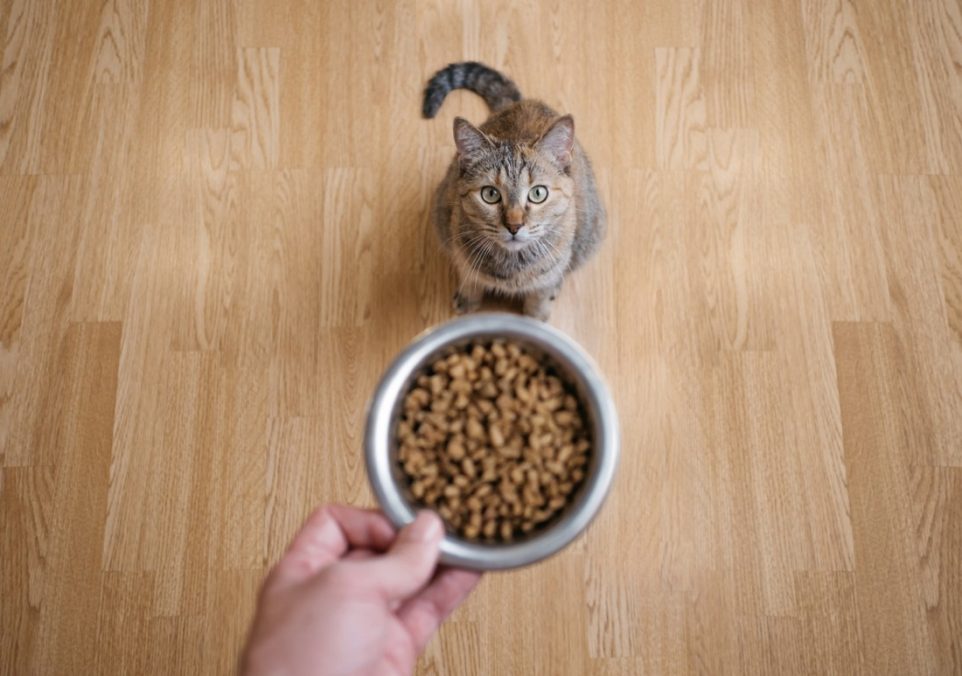Kitten vs. Cat: Can Kittens Eat Adult Cat Food?

Bringing a kitten into your home is an exciting adventure filled with joy and responsibilities. One important aspect of caring for a young feline companion is their diet. While kittens and adult cats share many dietary requirements, there are crucial differences that need to be considered when it comes to their meals. In this guide, we’ll explore the topic of whether kittens can eat adult cat food, the nutritional needs of these growing furballs, and how to ensure your feline friend gets the right nourishment at every stage of their life. Read on to learn how to best care for your pet.
Understanding the Nutritional Needs of Kittens
High Protein Content
Kittens require a diet with a higher protein content compared to adult cats. Protein is crucial for muscle development, and kittens are in a phase of rapid growth, making this nutrient essential for their overall health.
Essential Amino Acids
Kittens need specific amino acids like taurine and arginine, which are essential for proper heart and eye development. These amino acids are typically present in higher quantities in kitten-specific food.
Adequate Calories
Kittens have high energy needs due to their playful and exploratory nature. They require more calories per pound of body weight than adult cats to fuel their growth and activity levels.
Balanced Calcium and Phosphorus
Proper bone development relies on a balanced intake of calcium and phosphorus. Excessive or insufficient amounts of these minerals can lead to skeletal issues in growing kittens.
Controlled Fat Levels
While fat is an important energy source, excess fat can lead to obesity. Kitten food typically contains an appropriate fat content to support growth without excessive calorie intake.
Can Kittens Eat Adult Cat Food?
While kittens have specific nutritional needs, it’s not necessarily harmful for them to occasionally nibble on adult cat food. However, adult cat food lacks the tailored nutrient profile required for optimal kitten growth. Therefore, it’s crucial to prioritize kitten-specific food during their first year of life.
Feeding your kitten adult cat food exclusively can lead to nutrient deficiencies, slower growth, and potentially health problems. Kittens require a diet designed to support their rapid development, making kitten-specific food the best choice for the initial stages of their life.
Transitioning to Adult Cat Food
As kittens grow and reach maturity at around one year of age, you can gradually transition them to adult cat food. Transitioning should be done slowly over the course of about a week to avoid digestive upset. Mix a small amount of adult cat food with their kitten food, gradually increasing the proportion of adult food. Once they are fully transitioned, you can get an automatic cat feeder to take care of feeding them proper amounts of food at the right time.
Consulting a Veterinarian
Every kitten is unique, and their nutritional needs may vary based on factors like breed and health status. Consulting your veterinarian is essential to determine the best feeding plan for your kitten. They can provide guidance on the appropriate type and amount of food to ensure your furry friend grows up healthy and strong.
Final Note
Kittens and adult cats have distinct nutritional needs due to their varying stages of growth and activity. While it’s generally okay for kittens to have an occasional taste of adult cat food, their primary diet should consist of specially formulated kitten food to support their rapid development. As your kitten grows and matures, a gradual transition to adult cat food can be considered under the guidance of a veterinarian. Prioritizing your kitten’s nutritional requirements ensures they have the best start in life and grow into healthy, happy adult cats.
Your Pet’s Best Interest, Always
At Pet Institute, we take pet care seriously. We're dedicated to transparency, impartiality, and the well-being of your pets in every article, review, and recommendation we provide. Our unwavering commitment to these principles ensures that you, our valued reader, always receive reliable and unbiased information. Let us be your trusted guide in the world of pet care and companionship.